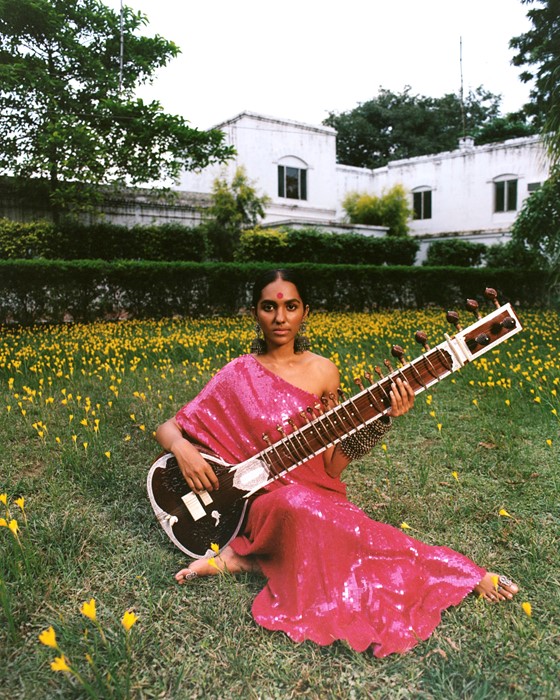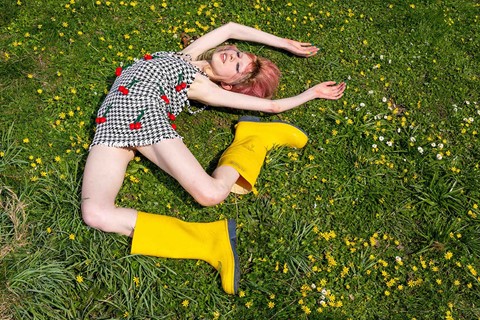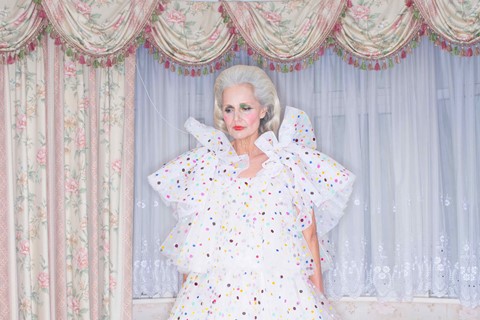As his new retrospective opens at London’s William Morris Gallery, Ashish Gupta talks about Bollywood, Brexit, and the gentleness of his designs
Ashish Gupta’s world is covered in sequins, punctuated by slogans and synonymous with glamour. In other words, the Delhi-born, London-based designer is selling us joy through his wonderfully ornate (and wonderfully camp) body of work. He invites us into this world in all its embellished glory by celebrating 20 years of his eponymous label through a retrospective at the William Morris Gallery.
Co-curated by Roisin Inglesby and Joe Scotland, Ashish: Fall in Love and Be More Tender digs deep into the designer’s archive, revealing, in the process, his distinctive vision. “When I first started, I was trying to invent a new language,” says Ashish, “and in the process, break through stereotypes of what people expected my work to be.” The earliest piece on display – a striped silver and gold rugby shirt from 2004 – is an extension of this modality, where Ashish confronted a symbol of traditional masculinity to create what he declares “the campest rugby shirt in the world”. In another room, the designer’s fabulous iteration of the pinstripe baseball uniform from his Autumn/Winter 2017 collection continues this dialogue. “I am fascinated by how queer culture takes stereotypes of straight culture, from sports, for instance, or ballrooms, and fetishises them and subverts them to create something uniquely different,” he explains.
The retrospective consists of standout pieces from Ashish’s extensive body of work, like his ‘Immigration’ slogan tee from 2016 that responded to Brexit and the news of Donald Trump’s presidency, the “psychedahlia” hand-beaded jumpsuit from A/W18, and a sari-inspired dress embellished with zardozi, a hand-embroidery technique from South Asia. “When I started, I wasn’t confident in exploring Indian references and looking towards my heritage for inspiration,” says Ashish. “I wanted to be judged on my work and not necessarily my identity. I was apprehensive that it would turn me into a novelty, and I didn’t feel comfortable with that."
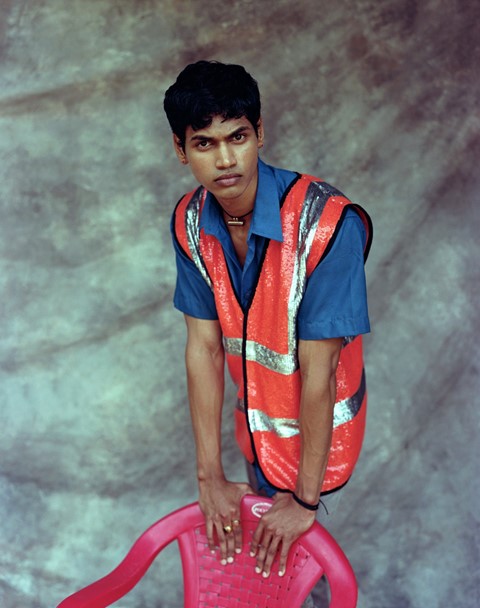
He recalls how the results of the Brexit referendum prompted a strange yet unsurprising reaction from him: a search for a new home. “It was then that I first started missing home and thinking about my own experience. It was an intense ordeal to explore those types of ideas. Still, it made me realise how much more I could look at and be informed by,” he says, citing his love for Indian cinema, Bollywood magazines from the 1970s and former Indian prime minister Indira Gandhi’s silk saris. “I grew up on such a diet of Indian cinema and fashion that I needed to have that distance and re-explore my heritage at my own pace.”
There’s a soft sentimentality in Ashish’s clothes that exists between the sequins and the technicolour. It lingers throughout the gallery space and onto the walls where Ashish Shah’s photography series of joyful queer brown bodies, Be More Tender, takes residence. “The more divided and aggressive the world gets, the more I value being tender. To be able to be soft, to have a gentleness, is so important,” Ashish explains. “Those photographs of love and joy by Ashish Shah and even the title of the exhibition echo a lot of those feelings that I had when I was younger and still carry with me. Capturing feelings through designs, fabrics and images that people feel connected to is central to my work and to this show.”
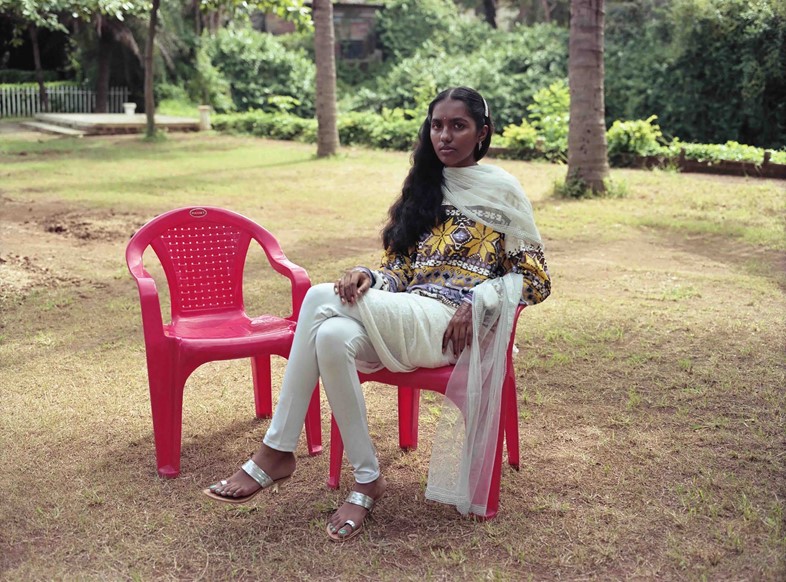
The title of the show, Fall in Love and Be More Tender, inadvertently reverberates an idea introduced by Susan Sontag’s 1964 essay Notes on Camp, which defines ‘camp’ as a tender feeling. Ashish, unaware of the essay when he first thought of the phrasing, calls it a full-circle moment. “The title encapsulates what I hope people will leave the show with – a renewed appreciation for softness.”
Ashish: Fall in Love and Be More Tender is on show at the William Morris Gallery in London until 10 September 2023.
